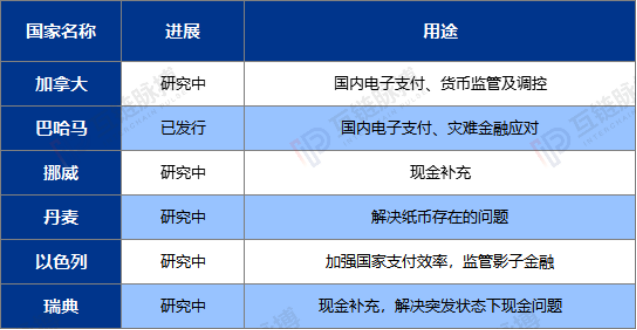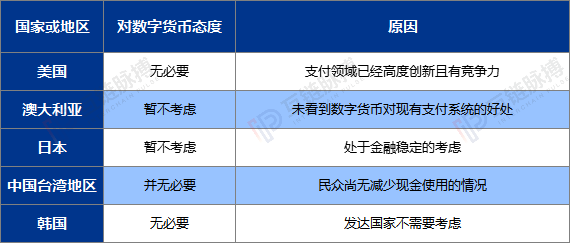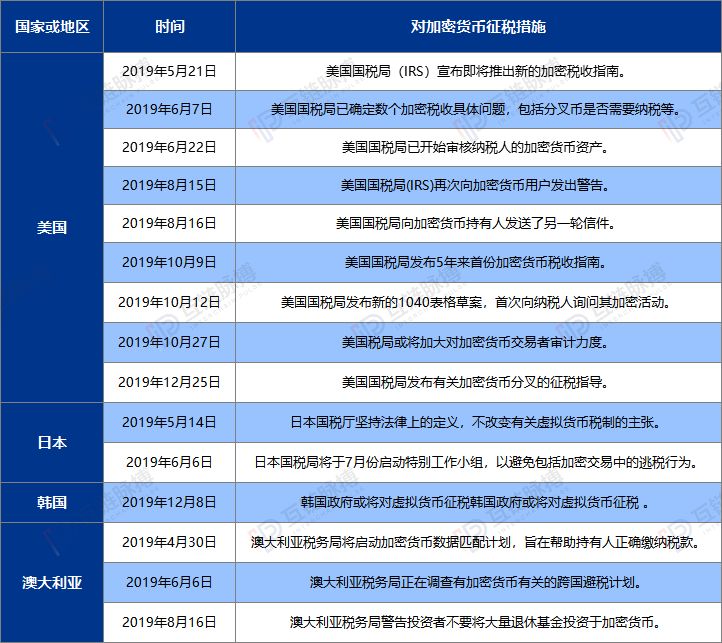The digital currency of global central banks has been divided into three types based on the hegemony of the US dollar
Not long ago, the United States "scheduled to clear" Iranian Suleimani. Iranian President Hassan Rouhani called on Muslim countries to issue digital currencies and reduce their reliance on the US dollar at an Islamic conference in Malaysia on December 19. Prior to this, Gaddafi and Saddam proposed plans to abandon the US dollar.
After the implementation of the "Scheduled Clearance" plan, global cryptocurrencies have generally risen, and news that Bitcoin has risen to $ 24,000 in Iran.
Digital currency is inseparable from international politics.
Three uses of central bank digital currencies
Before Christmas, the Central Bank of the Bahamas has begun a pilot test of a digital version of the Bahamian dollar, which uses a QR code to allow users to use their smartphones for payments and transfers. According to officials, digital currencies can free the country from its dependence on cash-especially after a natural disaster.
- Blockchain technology cited volume | oracle: the bridge between the blockchain and the outside world
- Opening with 500 million financing, the road to DeFi in 2020
- Trump speech sends peace signal, bitcoin price falls
The digital currency of the Bahamas also has clear boundaries-its internal use, especially after the disaster. It is used in the same way as China QR code payment. This digital currency has no impact on dollar hegemony. The Bahamas is known as "the suburbs of the United States," and it can continue to be "the backyard of the United States."
Like the Bahamas, central bank digital currencies that are only used to resolve domestic currency payments, storage, circulation, and regulation, as well as US allies or friendly countries, such as: Canada, Norway, Sweden, Israel, Denmark, and so on.
From the statements of the central banks of these countries, their digital currencies have not replaced any "ambition" of the "USD".
Central bank digital currency that does not intend to challenge the status of the US dollar

(Tabulation: interlink pulse)
The second category is countries sanctioned by the United States. For example, in November 2018, after the United States withdrew from the Iran nuclear agreement, it required SWIFT to cut off connections with Iranian financial institutions, including the Iranian central bank.
Iran began to seek to replace the US dollar system with digital currencies. In February 2019, Iran's Meri Bank, Iran's National Bank, Parsian Bank and Pasargad Bank jointly launched PayMon, a digital currency endorsed in gold. More famously, in order to overcome domestic inflation and strive for greater autonomy in foreign trade in 2018, Venezuela launched the "Petroleum coin-Petro". In 2019, Venezuela will continue to use petroleum, iron ore and other resources to support petroleum coins. Endorsed and opened the private payment function of petroleum coins.
However, whether it is PayMon in Iran or Petro in Venezuela, the scope of circulation is limited and it is not enough to challenge the hegemony of the US dollar. The reason is that these two digital currencies are on the surface linked to hard currencies such as gold and oil, but their centralized issuance method still relies on national credit. The market will be completely worried that once a crisis occurs in the country, such digital currencies cannot be promised. Exchange for gold oil.
Therefore, Iran sought to issue a mutually recognized digital currency together with Arab countries.
In addition, North Korea, Cuba, and Russia are also suffering from U.S. sanctions. From 2018 to 2019, they have also proposed the idea of national digital currencies.
The study of North Korean digital was exposed by the South Korean media. Russia originally resisted digital currencies, but in 2019 it was ready to start.
Central bank digital currency to challenge US dollar status

(Tabulation: interlink pulse)
There is also a middle class. There will not be a clear positive conflict with the dollar, but it may have an impact on the status of the dollar. Such digital currencies are often issued by countries with economic strength.
Digital currency claims in China, Germany, the United Kingdom, and even India fall into this category. The UK began research on fiat digital currencies in 2015. As the world's second-largest financial center, the UK has strong ambitions in the era of digital finance.
In August last year, Mark Carney, Governor of the Bank of England and the Bank of England, pointed out that although the US dollar has played a leading role in the world order over the past century, it is necessary to discuss the establishment of a new international monetary and financial system (IMFS) Because recent developments, such as globalization and increased trade disputes, may have a greater impact on the national economy than ever before. Mark Carney has suggested some potential alternatives to the U.S. dollar, such as the renminbi, and a digital currency backed by the International Federation of Central Banks.
British private company Fnality, its stablecoin USC issuance plan has received support from more than a dozen global banks.
As the European leaders, Germany and France have a strong sense of responsibility for EU finance. The euro originally hoped to replace the US dollar to some extent, but it failed to achieve its purpose. When the digital currency arrived, it gave the euro hope for a new rise.
In October last year, the German Finance Minister stated that he would introduce a central bank digital currency called "e-euro". He believed that such a payment system would be beneficial to European financial centers and their integration with the world financial system. One area is left to China, Russia, the United States or any private agency.
On December 6, last year, the French central bank governor Francois Villeroy de Galhau announced that France will soon begin testing the central bank digital currency (CBDC) provided to financial institutions and plans to start the project before the end of the first quarter of 2020. It is said that the digital euro pilot will only target financial sector participants and will not involve personal retail payments.
As a big country, India is naturally not willing to be marginalized. The country also opposed digital currencies early last year, but information on the upcoming launch of Libra and China's digital currencies led India to begin a re-examination and said it would develop its own digital currency.
The central bank's digital currency, DCEP, was the closest to launch. The information it currently discloses is still used for domestic payments, enabling convenient payments (electronic payments without networks), and improving regulatory accuracy and efficiency. However, after the Libra white paper was released, it has accelerated its progress and has a strategic purpose of resisting the US dollar digital currency.
Central bank digital currency with challenging US dollar status

(Tabulation: interlink pulse)
Hardcore allies tax digital currencies
It is interesting that from the attitude towards digital currencies, it can be seen which government is the "hardcore" of the United States. In other words, the governments of some countries or regions would rather sacrifice financial innovation and maintain the hegemonic status of the dollar.
First, the United States, as a major innovation country, is very conservative with digital currencies. Not only did Libra cause dystocia, the Fed also had no intention to advance the US central bank's digital currency.
On September 30 last year, two U.S. lawmakers, French Hill and Bill Foster, sent a letter to Federal Reserve Chairman Jerome Powell asking if the Fed was considering the creation of Your own digital currency.
In a reply, the Fed stated that the Fed is paying close attention to the digital currencies being explored by the central banks of many countries, but currently has no plan to issue digital currencies in USD. Powell said that the United States is currently highly innovative and competitive in the payment field, providing consumers with a variety of choices, and it seems unnecessary to issue digital currencies. At the same time, this move may also cause various issues such as related laws, monetary policies, payment policies, financial stability, and supervision. Facing the pros and cons, the Fed needs to weigh carefully before making a decision.
The existing world financial system is very favorable for the hegemony of the US dollar, so the United States is conservative in changing the status quo.
It is also clear that Japan, South Korea, Australia and Taiwan in China will not launch their own digital currencies.
Countries or regions that do not consider central bank digital currencies

(Tabulation: interlink pulse)
Most of these countries or regions do not consider the external interpretation of the central bank's digital currency. They are mostly satisfied with the current situation. It is actually an identification of dollar hegemony.
Coincidentally, these countries have strict tax policies on cryptocurrency transactions such as Bitcoin.
The monitoring of the Interlink Pulse Policy Library shows that in the past year, the United States, Japan, South Korea, and Australia have imposed a number of tax measures on cryptocurrency transactions.
China's Taiwan region also introduced tax measures on Taiwan's cryptocurrency in 2018.
Tax measures on cryptocurrencies in some countries in 2019

(Tabulation: interlink pulse)
We will continue to update Blocking; if you have any questions or suggestions, please contact us!
Was this article helpful?
93 out of 132 found this helpful
Related articles
- Difficulties and Solutions to Blockchain Security in Accidents
- European Central Bank President: Hopes for the development of digital currencies, will not prevent private companies from participating
- Fintech giants hunt for blockchain: different landing postures
- Thousands of exchange platform license thresholds reach the cloud or 5 platforms enter the Hong Kong Securities Regulatory Commission's sandbox
- Frequent trust crisis in the public welfare industry Can blockchain become a "life-saving straw"?
- Zhejiang court launched "e-key intelligent delivery", the whole process of on-chain deposit certificate through blockchain technology
- First local financial off-site supervision blockchain system released






